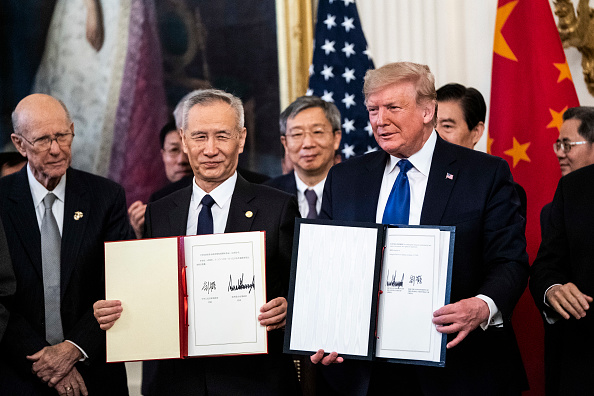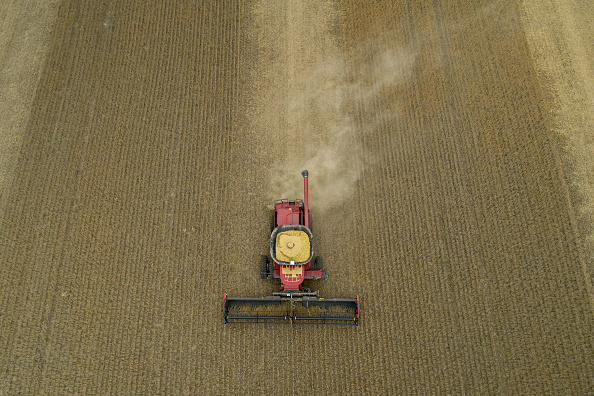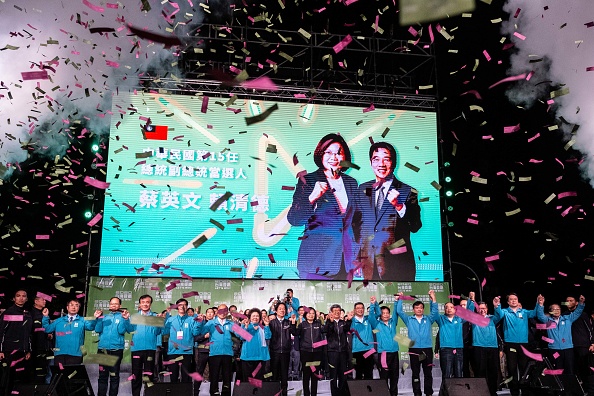
 Signed, Sealed, Delivered
Signed, Sealed, DeliveredAfter two years of major tit-for-tat, the United States and China finally inked a Phase One trade deal, signaling some respite for the bilateral economic relationship and the global economy at large. President Trump has heralded the agreement as a political triumph, trumpeting China's pledge to purchase an additional $200 billion of American goods and services by 2021, and leveling the playing field for American businesses operating in China.
Despite Trump's victory lap, many criticisms remain of the deal. Some bemoan the lack of clarity on purchasing commitments and the terms of a 'Phase Two' trade deal, while others claim that China stands to gain the most from the deal in the end. While the deal has earned more concessions from the Chinese under any other administration, critics still claim that certain structural changes, such as adjustments to intellectual property protection, opening up of its economy, and innovation might actually benefit China in the long run. Still, the agreement is celebrated among experts. Bilateral dialogue is important, according to Harvard University Distinguished Service Professor Emeritus Joseph Nye in his latest exclusive article for China-US Focus, and can help both countries prevent "disengagement from degenerating into a stampede toward full protectionism."
 Farmer Victories and Doubts
Farmer Victories and DoubtsWhile both countries have suffered tremendously as a result of the trade war, the American farmer has been among the hardest hit. The trade deal offers the promise of recovery to the struggling U.S. agriculture field, with China agreeing to buy $40 billion in farm commodities, including soybeans, pork, cotton and wheat. This would signal a nearly 90% increase from 2017.
However, the deal doesn't directly bind China to any agreements, raising concerns that Beijing could renege on its promises at any point. Some farmers are also wary as it maintains retaliatory tariff on American agriculture exports, and forces farmers to rely more heavily on Chinese purchases.
 The Results are In
The Results are InCross strait relations suffered a setback, as President Tsai Ing-wen won a landslide victory in Taiwan's presidential election. With her victory, the electorate has signaled a reluctance for Taiwan's closer ties with the mainland, and a desire for stronger ties with the United States.
Tsai said she will not give into intimidation from China and will maintain the sovereignty of Taiwan during her second term, even as Beijing pushes to bring it under closer control. In response to Tsai's election, which is deemed illegitimate in Beijing, China's top diplomat Wang Yi said that separatists will "leave a stink for 10,000 years." Months of protests in Hong Kong have left Taiwanese suspicious of China's intentions and wary of closer ties. President Xi has warned that China will use force, if necessary, to prevent Taiwan from seeking formal independence.
Both Secretary of State Pompeo and Presidential Candidate Joe Biden formally congratulated Ms. Tsai on her victory, saying that Taiwan's democratic system, free market economy and civil society, made it "a model for the Indo-Pacific region and a force for good in the world." China has been angered by Washington's support for Taiwan.
Prepared by China-US Focus editorial teams in Hong Kong and New York, this weekly newsletter offers you snap shots of latest trends and developments emerging from China every week, while adding a dose of historical perspective.
- 2020-01-10 Ink the Deal
- 2019-12-20 A Level Playing Field
- 2019-12-13 It’s a (Limited) Deal!
- 2019-12-06 An Arbitrary Deadline
- 2019-11-22 On or Off Again?
- 2019-11-15 Counterweight Critique
- 2019-11-08 "I haven't agreed to anything"
- 2019-11-01 Don’t Hold Your Breath
- 2019-10-25 Weaponizing Diplomacy
- 2019-10-18 Economic Shudders
- 2019-10-11 A “Big Day of Negotiations”
- 2019-10-04 Birthday Celebrations
- 2019-09-28 A World Split in Two?
- 2019-09-20 Another Round
- 2019-09-13 Olive Branch or Olive Twig?
- 2019-09-07 The Unwinnable War?
- 2019-08-31 “Sorry, it’s the way I negotiate”
- 2019-08-23 Tit for Tat
